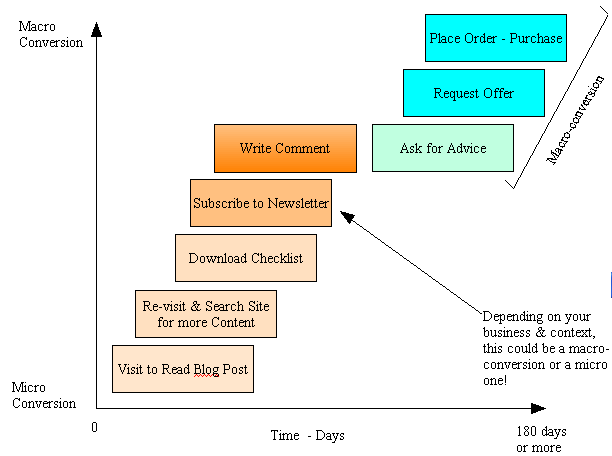3 questions about blog comments and ROI
- Should one close the comment thread on a blog post?
- How can one close comments on older blog posts?
- ROI (return on investment) to the rescue: Are blog comments worth the trouble?
Keywords: Daimler blog, budget, corporate blog, cost, marketing mix, ROI, return on investment, strategy, time management
Please answer the questions I pose at the end – I need your feedback to decide.
By the way, do what 5,000 other subscribers have done – sign up for our FREE blog newsletter!
1. Comments on corporate blog – when to close?
In 2005, personal development blogger Steve Pavlina decided to close the option for readers to comment, partly because he felt comments can be abusive, useless and might be considered spam.
At the end of July 2012, Greg McFarlane wrote on this topic:
Unless we want to just broadcast our news, disabling comments is not an option in todays Web 2.0 world. The challenge is to manage possible comment and trackback spam. Moreover, you must decide how long you will allow comments on your corporate blog.
Should one close commenting on a blog post after a period of one week? Maybe two weeks after publishing the post (see The Independent, which has zero comments for most blog entries, which means zero reader engagement)? Or should we go the Daimler blog route, allowing comments years after the entry was published?
You will have to decide what is best. However, unless you are inundated with spam, keep the commenting option on old blog posts open as most corporate blogs seem to do.
Recommended: Susan Gunelius: 5 ways to identify blog comment spam
2. How to close comments on older blog posts?
In most cases it is worth keeping your comments open, but you have two options to deal with this challenge should it come up, namely:
2.1 Close posts for commenting or trackbacks – indvidually: On WordPress, all you need to do is click on edit post then uncheck allow comments and allow trackbacks and pingbacks.
2.2 Close commenting after a period of time – automatically: In WordPress go to Settings > Discussion > Other comment setting > choose automatically close comments on articles older than X days.
This closes the commenting option, but I advise you go for option 2.1 instead.
Recommended: Amanda DiSilvestro: Should you close comments on older blog posts? Robert Weller: Warum sich Kommentare für Blogger lohnen

3. Costs and ROI for blog comments?
Moderating blog comments takes time and effort on the author’s part. There is nothing worse for the commenter than having things happen, like:
a. Comment gets lost in spam box: False positives happen, whereby the anti-spam plugin labels a comment as spam when it is not. But this is no excuse, because any author worth their salt regularly checks the spam box and gets comments out of there.
b. Delay: Comments should be moderated before being posted, but corporate bloggers should strive to publish these comments within 24 hours. Seems like a long time, but not so much when you take different time zones into account.
c. No answer: If comments are the icing on the cake for the author, you would hope they would reward the reader who took the time to comment with a reply. Most often, blog posts’ quality increases further with comments and subsequent author replies, again making the post more useful for readers. That reader may stop by months after the entry was posted thanks to search results, where your blog entry with all these comments might be placed within the top three.
Frankly, if Accenture gets paid for six of its consultants to monitor UBS’ social media and blogs, moderating and replying to comments in a timely fashion should be no problem. However, outsourcing such work is expensive and never authentic, since consultants cannot represent your organization. Hence, Daimler does it in-house and informs the author of the blog entry that a comment was published. In turn, they likely respond quickly.
Before we can see any benefit (as the graphic above shows, it is a long road to success), we must ensure that all comments we receive are published quickly. Of course, having them end up in the spam box forever is inexcusable. So is failing to reply to a comment over 25 words. Such behavior suggests that we do not appreciate our readers taking the time to contribute to our blog’s content.
Of course, we have to set some goals regarding commenting (see above) before we can reap the rewards and register ROI. And frankly, since Google likes reader comments on blogs, should you not do the same? Therefore, track your corporate blog’s reader comments like the Social Media Examiner. The number of your blog’s readers and quality of their engagement will improve.
Recommended: Urs E. Gattiker: Social media ROI: 3 things we usually do wrong
Source: Daimler blog: Reader comment ROI, anyone?
What is your opinion about corporate blogs and how they should handle comments?
How much time do you spend moderating and answering comments?
In your opinion, what are the characteristics of high-quality reader comments?
Find more on Google about corporate blog, KPI, ROI, metrics, conversation, engagement
The author: This post was written by social media marketing and strategy expert Urs E. Gattiker, who also writes about issues that connect social media with compliance, and thrives on the challenge of measuring how it all affects your bottom line.
His latest book, Social Media Audit: Measure for Impact, appeared in November 2012 (Springer Science Publishers), and he is currently hard at work on the next one.
Connect with ComMetrics on Google+ or the author using: Email | Twitter | Google+ | Xing


Pingback: ROI, CyTRAP BlogRank, measure for impact, reader engagement, social buzz